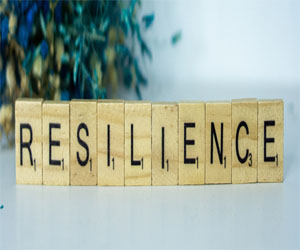


Finding Tranquility In Scents

In our fast-paced and demanding lives, stress has become an ever-present companion. The constant juggling of responsibilities and the pressures of modern life can take a toll on our physical, emotional, and mental well-being. Amid this chaos, aromatherapy emerges as a soothing balm, offering an effective and holistic approach to stress relief.
Understanding Aromatherapy
Aromatherapy is an age-old practice that harnesses the therapeutic properties of essential oils, which are concentrated extracts derived from various plants. These oils contain a wide range of natural compounds, each with its unique fragrance and healing potential. When inhaled or applied to the skin, essential oils can have a profound impact on our bodies and minds, making them a valuable tool for managing stress.
Calming The Mind And Body
Aromatherapy promotes stress relief by calming the mind and body. Essential oils such as lavender, chamomile, and bergamot are known for their relaxing and anxiety-reducing properties. The mere inhalation of these fragrances can trigger a sense of calm, slowing the racing thoughts and soothing frayed nerves. This immediate effect on the mind sets the stage for holistic stress relief.
Physical Relaxation
Stress often manifests physically, leading to tense muscles, headaches, and other discomforts. Aromatherapy can alleviate these physical symptoms by encouraging relaxation. Oils like eucalyptus and peppermint can ease muscle tension and relieve headaches, providing a sense of physical well-being that complements the emotional aspect of stress relief.
Emotional Balance
Emotions are closely linked to stress, and aromatherapy can help restore emotional equilibrium. Scents like rose and ylang-ylang are known for their mood-enhancing qualities, uplifting the spirits and promoting emotional balance. This emotional support is a crucial component of comprehensive stress relief.
Mental Clarity
Stress can cloud our minds and hinder our ability to focus and think clearly. Aromatherapy offers a solution by enhancing mental clarity and reducing mental fatigue. Oils like lemon and rosemary are particularly effective at improving cognitive function, helping us regain control over our thoughts and actions.
Holistic Stress Relief
Aromatherapy provides a holistic approach to stress relief, addressing the interconnected physical, emotional, and mental facets of stress. Incorporating essential oils into your daily routine, whether through diffusers, baths, massages, or inhalation, can create a calming and tranquil environment that supports well-being.
In the fast-paced and stressful world we live in, finding holistic approaches to well-being has become more crucial than ever. Aromatherapy, with its roots in ancient practices, has resurfaced as a powerful method to enhance physical, emotional, and mental health. Central to this practice are essential oils, concentrated extracts from plants that possess incredible healing properties. "The Healing Power of Essential Oils: Aromatherapy for Well-Being" dives into the world of aromatherapy, unlocking the secrets of these potent oils and their transformative effects on our lives.
Stress relief through aromatherapy is a natural, effective, and holistic approach to managing the pressures of modern life. By embracing the therapeutic potential of essential oils, individuals can find tranquility and balance in the soothing scents of aromatherapy, ultimately leading to a more relaxed and stress-free existence.
A Holistic Approach To A Fulfilling Life
 Key Components Of Overall Well-Being
Key Components Of Overall Well-Being
Physical Health: A fundamental aspect of overall well-being, physical health encompasses nutrition, exercise, sleep, and the management of chronic conditions. Taking care of your body through regular physical activity and a balanced diet is essential for optimal well-being.
Mental Health: Mental well-being involves emotional stability, resilience, and a positive mindset. It's the ability to cope with stress, maintain healthy relationships, and find purpose and meaning in life.
Emotional Health: Emotional well-being relates to understanding and managing your emotions. It involves recognizing and expressing feelings, as well as developing strategies to handle emotional challenges.
Social Connections: Building and maintaining meaningful relationships with friends, family, and the community is a key component of overall well-being. A strong support system contributes to happiness and provides a safety net during difficult times.
Financial Stability: Financial well-being is the ability to manage and plan for financial security, reducing stress and enabling individuals to focus on other aspects of life.
Career And Personal Development: A fulfilling career and personal growth contribute to overall well-being. Setting and achieving personal and professional goals can enhance one's sense of purpose and satisfaction.
Nurturing Overall Well-Being
Balanced Lifestyle: Strive for a balanced lifestyle by making time for work, relaxation, and leisure activities. Allocate time for exercise, hobbies, and activities that bring you joy.
Healthy Eating Habits: Maintain a balanced and nutritious diet to support physical and mental health. Avoid excessive consumption of processed foods and added sugars.
Regular Physical Activity: Incorporate regular exercise into your routine. Physical activity releases endorphins, reducing stress and promoting mental and emotional well-being.






Bridging Ancient Wisdom And Scientific Rigor
 Unveiling The Secrets Of Plants
Unveiling The Secrets Of Plants
Herbs and botanicals have been used for millennia as remedies for various health conditions. Yet, it's only in recent decades that the scientific community has taken a more profound interest in understanding the bioactive compounds within these plants and their potential applications. Modern research is peeling back the layers of herbal medicine, revealing the intricate chemistry that underlies their healing properties.
Evidence-Based Herbal Medicine
One of the most significant contributions of modern research is the establishment of evidence-based herbal medicine. Clinical trials and scientific studies have become more common, subjecting herbal remedies to rigorous scrutiny. This has led to the validation of many traditional uses of herbs and the discovery of new therapeutic applications. For example, studies have confirmed the effectiveness of St. John's Wort for mild to moderate depression and ginger for nausea and vomiting.
Identifying Active Compounds
Modern research has been instrumental in pinpointing the active compounds within herbs responsible for their healing effects. This knowledge allows for the isolation and standardized production of herbal extracts, improving the quality and consistency of herbal products. For instance, curcumin, the active compound in turmeric, is renowned for its anti-inflammatory and antioxidant properties.
Unleashing Your Full Potential
 2. Nourishing The Body
2. Nourishing The Body
Proper nutrition and physical activity are fundamental components of health. The transformative journey involves adopting a balanced and nutritious diet and integrating regular exercise into your daily routine. This not only contributes to physical health but also positively impacts mental well-being. You'll find increased energy and resilience.
3. Emotional Well-Being
Emotional health plays a crucial role in the transformative journey to health. It's about understanding your emotions, managing stress, and finding strategies to cope with life's challenges. Emotional intelligence empowers you to make better choices for your overall well-being.
4. Spirituality And Connection
The spiritual dimension is not about religion but the deeper connection to something greater than yourself. It's about finding a sense of purpose and meaning in life. This connection can provide inner peace and resilience during challenging times, fueling your transformation.
The Holistic Approach
A transformative journey to health is holistic in nature, meaning that it encompasses the whole of your existence.
Discovering A World Of Benefits
 Improved Digestion: Many people report better digestion when they adopt a gluten-free diet. This is particularly true for those with non-celiac gluten sensitivity, who may experience less bloating, gas, and abdominal discomfort.
Improved Digestion: Many people report better digestion when they adopt a gluten-free diet. This is particularly true for those with non-celiac gluten sensitivity, who may experience less bloating, gas, and abdominal discomfort.
Increased Energy: Eliminating gluten from your diet can lead to increased energy levels. When your body no longer has to deal with the inflammation and digestive distress caused by gluten, you may find yourself feeling more energetic and alert.
Better Skin Health: Gluten sensitivity is often linked to skin conditions such as eczema and psoriasis. Going gluten-free may lead to healthier, clearer skin.
Weight Management: While gluten-free doesn't necessarily mean low-calorie, many people find that they naturally reduce their calorie intake when they eliminate gluten-containing foods. This can be beneficial for weight management and achieving a healthier body composition.
Balanced Blood Sugar: A gluten-free diet can help maintain more stable blood sugar levels, which is beneficial for individuals with diabetes or those looking to reduce their risk of developing the condition.
Reduction In Inflammation: Gluten has been associated with inflammation in the body, and reducing or eliminating it from your diet may help manage chronic inflammatory conditions like arthritis.
Improved Nutrient Intake: When transitioning to a gluten-free lifestyle, many individuals become more conscious of their food choices. This often leads to a diet that's higher in nutrient-rich, whole foods such as fruits, vegetables, lean proteins, and gluten-free grains like quinoa and rice.
Mindful Eating Practices: Adopting a gluten-free lifestyle encourages mindfulness about food choices. Reading labels effectively and being vigilant about hidden sources of gluten can promote a healthier and more conscious approach to eating.
Effective Strategies For Navigating Life's Challenges
 Effective Resilience Strategies
Effective Resilience Strategies
Develop Emotional Intelligence: Emotional intelligence involves understanding and managing your emotions effectively. It's a foundational skill for resilience, as it allows you to navigate challenging situations with self-awareness and emotional control.
Maintain A Growth Mindset: A growth mindset is the belief that you can learn and grow from experiences, including failures. Embrace challenges as opportunities for growth rather than setbacks, and you'll be better equipped to bounce back.
Cultivate Social Connections: Building a strong support system is vital for resilience. Nurturing positive relationships with friends and family provides emotional support, encouragement, and a sense of belonging during tough times.
Practice Self-Care: Taking care of your physical and mental well-being is essential. Regular exercise, proper nutrition, and adequate sleep contribute to your resilience by strengthening your body and mind.